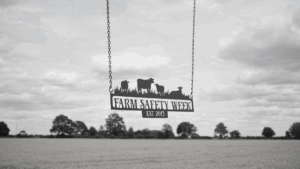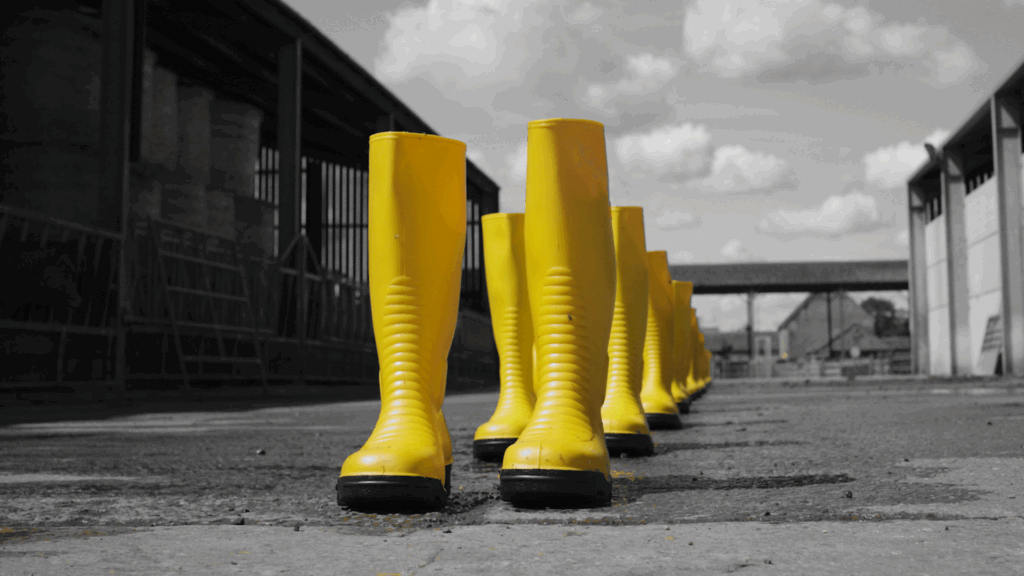Stark new figures released by the Health and Safety Executive to mark Farm Safety Week show farming remains the deadliest profession in Britain, with a poor safety record.
In 2024/25, 23 farm workers lost their lives on farms across Great Britain, nearly half (48%) of whom were over the age of 65. A further five agricultural workers were killed over the same period in Northern Ireland, according to the Health and Safety Executive for Northern Ireland (HSENI).
The HSE figures show that, in addition to the 23 farm workers killed, four members of the public lost their lives on farms last year in Great Britain, two of whom were children – both in accidents using All-Terrain Vehicles (ATVs).
Being killed by moving or overturning vehicles was again the main cause of fatality in the industry in 2024/25.
Farming has, for a long time, held the country’s worst safety record as a profession in the UK. Over the past 13 years, an average of 31 lives have been lost on our farms every year – 27 farm workers and 4 members of the public, including children.
In an industry that accounts for 1% of the working population, farming accounts for nearly 20% of all workplace deaths.
There is some more positive news, however. The number of long-term ill health and serious injuries fell to 18,000 in 2024/25, compared with a recent average of 23,000.
Furthermore, according to rural insurer NFU Mutual, the number of farm accident claims in the UK dropped from 937 in 2023/24 to 894 in 2024/25. Though modest, this decline is a welcome indication that safety initiatives and awareness campaigns may be starting to have an impact, according to the Farm Safety Foundation, which is currently running 13th Farm Safety Week.
However, despite the encouraging reduction in claims and reported injuries, the causes of farm accidents remain consistent and concerning.
Incidents involving moving vehicles, falls from height, slips and trips, and trapped body parts continue to dominate the statistics. In the past year alone, these types of accidents cost rural insurer NFU Mutual over £48 million.
 Farm Safety Week, the annual awareness-raising campaign run by The Farm Safety Foundation (Yellow Wellies), brings attention to the dangers farmers face every day growing food for the nation.
Farm Safety Week, the annual awareness-raising campaign run by The Farm Safety Foundation (Yellow Wellies), brings attention to the dangers farmers face every day growing food for the nation.
The foundation continues to emphasise that reducing serious and fatal injuries is only part of the challenge, as it highlights the need to address an underlying culture of risk-taking and complacency.
Research it has carried out revealed that 81% of farmers in the UK believe that ‘complacency’ – always having it done that way – is a major contributor to having a farm accident while 82% cite ‘attitude’ as the major contributor.
Stephanie Berkeley, Farm Safety Foundation Manager, said: “‘I’ve always done it that way’ is a phrase we hear all too often.
“Although confidence built over years on the land is a strength, it can also become a blind spot. When you start to underestimate the dangers of the vehicles, equipment and animals we know so well, we risk letting routine turn deadly. Experience should guide caution, not excuse it.
“Over the years we have seen the attitudes and behaviours around farm safety in the UK and Ireland starting to change but the pace of change is slow. Too slow for the families who have lost loved ones in preventable accidents. Too slow for the thousands of farmers living every day with chronic pain, long-term illness, or life-altering injuries caused by the very work that sustains our communities. We cannot accept this as the cost of doing business.
“This is a plea… to everyone working and living in the industry: please, stop and reflect. Look at your daily routine, your equipment, your mindset. Ask yourself, what can I do today to make my farm safer? For myself. For my family. For the people who work with me.
“Change doesn’t happen overnight. It starts with one decision, one action, one conversation.”
Wayne Owen, HM Inspector of Health and Safety (Agriculture) added: “Farming is an extremely important but difficult and challenging job. This general complacency towards tasks, and a poor attitude towards keeping people safe and healthy has to change. The responsibility for that change rests with the industry itself.
“Farmers really need to put the health and safety of themselves and others at the heart of what they do.”
- For more information on Farm Safety Week visit www.yellowwellies.org or follow @yellowwelliesUK on Instagram/Facebook/X using the hashtag #FarmSafetyWeek




